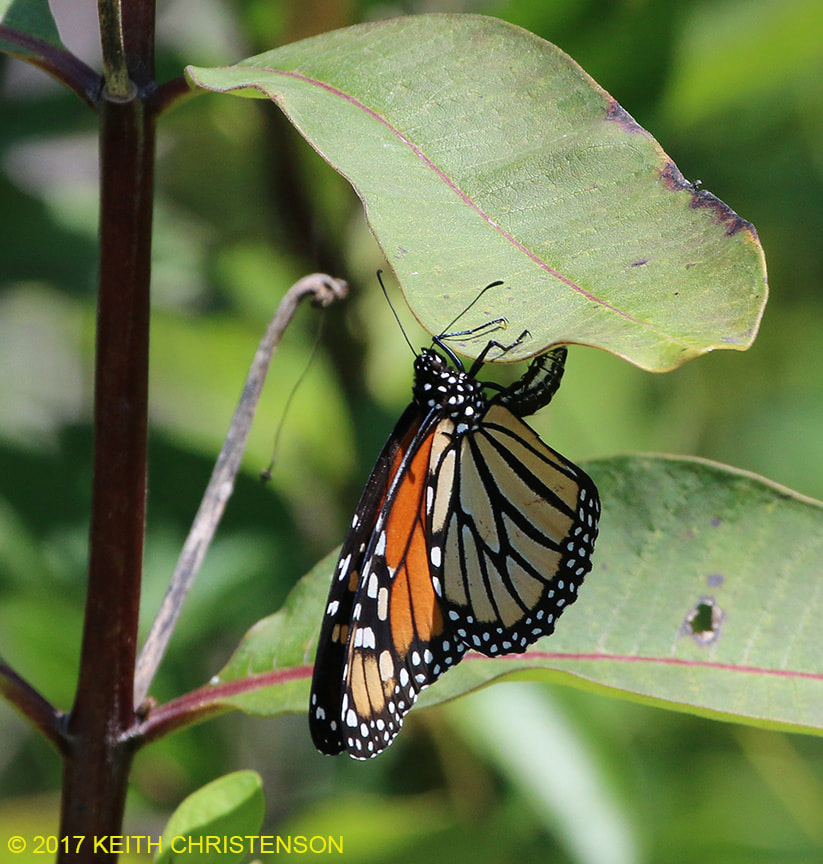There is way more to this story than I can get into here, but two things are worth knowing. First, the milkweed plant contains toxic chemicals, and second, that even though monarch numbers have been way down in modern years just planting more milkweed isn't a perfect solution.
And as for the toxins, well, they sequester them. This allows these cardenolides to stay in their body through metamorphosis and arrive in the adult butterflies, having no seeming effect on the animals. But you still won't like it if you eat these toxins, so chowing down on a monarch will likely induce vomiting or similar stomach distress. Animals that eat a monarch butterfly learn that this is not good food, and avoid them in the future. Nifty little strategy they've got going there. Side note: the very tasty Viceroy butterfly mimics a monarch's colors to not get eaten since it looks like the awful-tasting one.
So with the numbers of monarchs decreasing (mainly due to habitat loss and pesticide spraying), a grand plan was hatched to have gardeners plant more milkweed. Seems very reasonable, since milkweed makes for a nice garden plant and will attract the pretty butterflies. Well, all is not perfect here. Seems like most all of the available milkweed plants to gardeners in the US are tropical milkweeds, which have a problem.
Milkweed can carry a parasite that is hard on the butterflies, and they can pick it up during the caterpillar stage while eating the leaves. They then pass it on to the adults, which weakens them severely and can prevent them from having the strength to migrate (many go all the way to Mexico!). This whole problem has historically been kept in check by all the milkweeds dying off each winter along with most infected adults. Each year the unaffected adult butterflies return to relatively unaffected milkweed.
But tropical milkweed is different. In parts of the US, like southern Texas, it does not die out but survives the winter. This provides both for continuing the infection and also a side problem whereby some butterflies now do not continue their migration but just stop there as the milkweed remains present (and continues to infect them).
So, monarchs have had it tough lately, even with a large effort to help them out. And this is just a small snippet of the whole story, but certainly an interesting story to learn.

 RSS Feed
RSS Feed